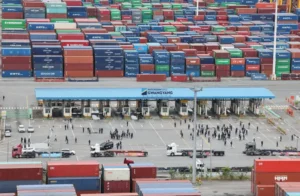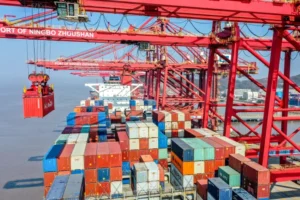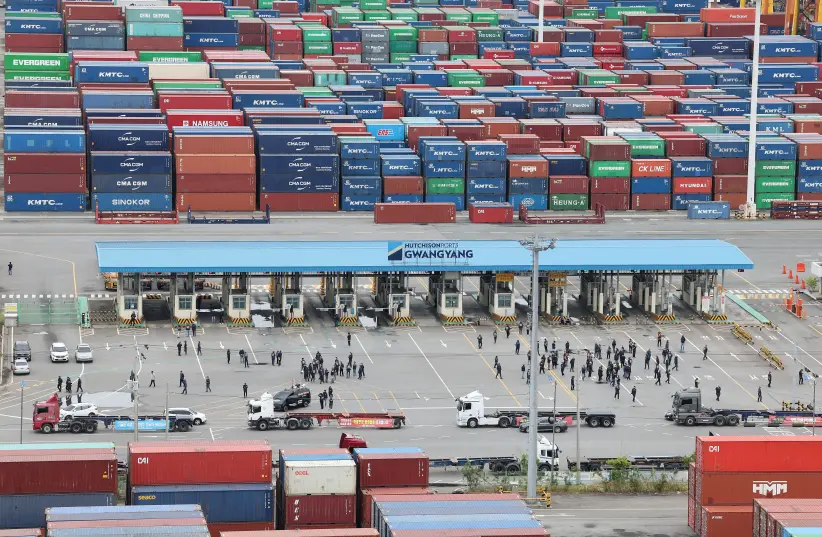About 90 tonnes of the material, or a week’s worth of shipments, have been delayed, the trade body said in a statement.

A week-long strike by truck drivers in South Korea has disrupted shipments to China of a key cleaning agent used by makers of semiconductor chips, the Korean International Trade Association (KITA) said on Tuesday.
It was the first sign that the strike was affecting the global supply chain of chip production, having already cost South Korean industry more than $1.2 billion in lost output and unfilled deliveries.
KITA said a Korean company that produces isopropyl alcohol (IPA), a chemical used in the cleaning of chip wafers, faces difficulties in shipping to a Chinese company that in turn supplies wafers to chipmakers.
About 90 tonnes of the material, or a week’s worth of shipments, have been delayed, the trade body said in a statement.

It corrected an earlier statement that production had been disrupted, and clarified that the Chinese firm does not supply wafers to Samsung Electronics Co Ltd’s chip production operations in China.
Further delays
Also facing problems because of the strike are IPA shipments by a major South Korean petrochemical company from its plant in the port city of Yeosu.
Only an “essential amount” is being let through, said a person familiar with the matter, who sought anonymity and declined to identify the company because of the sensitivity of the matter.
The company’s output of IPA is used as an industrial cleaning agent in semiconduoctors and liquid crystal displays (LCD) among other applications, it said in its website.
The truckers’ union, which is protesting against soaring fuel prices and demanding guarantees of minimum pay, vowed to continue the strike after four rounds of talks with the government have failed to find a resolution.
In a statement on Tuesday, it also condemned the transport ministry for being “neither willing to talk nor capable of resolving the current situation”.
“The transport ministry is neither willing to talk nor capable of resolving the current situation.”
Korean Truckers Union
Analysts expect the strike impact on domestic chipmakers to be limited, however, saying that both Samsung and the world’s second-largest memory chip maker, SK Hynix, usually keep on hand three months or more of inventory for materials.
“Both drastically increased inventory since Japan’s export curbs on-chip material in 2019 highlighted the issue,” said Ahn Ki-Hyun, senior executive director of the Korea Semiconductor Industry Association.
Effects of the strike
Small business owners voiced concern about the havoc a lengthy strike could deal to recovery from the COVID-19 pandemic, as the truckers had launched their action less than two months after social distancing norms were lifted.
“Small business owners are waiting helplessly,” a dozen lobby groups for small businesses said in a joint statement, adding that shipments of liquor, food, farm and fisheries products had been blocked.
An official at HiteJinro Co Ltd, the biggest brewer of soju, the South Korean liquor, said its shipments were cut about 40% by the strike.
Large retailers were sending their own trucks to ensure inventory, but supplies were drying up for some small businesses, such as convenience stores, the official added.

